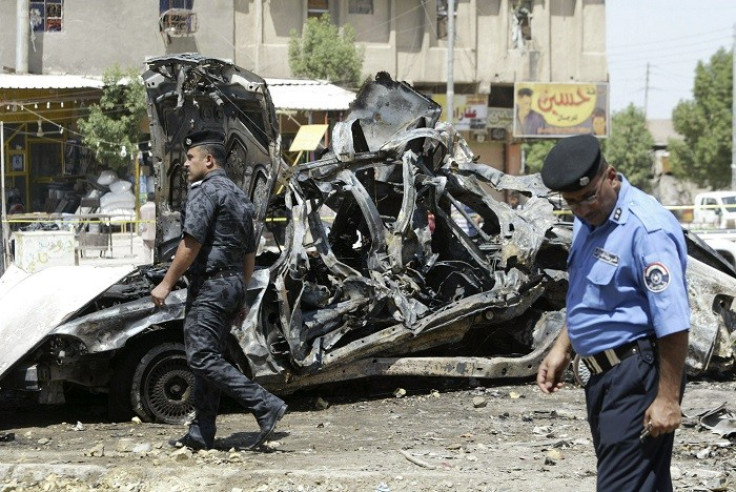Iraq: Baghdad Funeral Tent Rammed by Suicide Bomber on Day of al-Qaida Bloodshed

A suicide bomber has rammed an explosives-laden car into a funeral tent packed with mourners in a Shi'ite part of Baghdad, killing 30 mourners.
The strikes are the latest in a months-long surge of violence that is raising fears that Iraq is slipping back toward the widespread sectarian killings that followed the 2003 U.S.-led invasion.
The attack on the funeral happened around dusk in the densely populated Shiite neighborhood of Sadr City in northeastern Baghdad.
Police said at least 30 people were killed and more than more than 50 wounded when the bomber smashed his car into the tent before setting off its deadly payload.
The attack happened hours after insurgents launched a suicide attack on a police headquarters in the city of Baiji, killing seven policemen and wounding 21 others.
In that attack, police said four suicide bombers stormed a base for police commandos. Guards managed to kill one suicide bomber, but three other bombers were able to set off their explosive belts inside the compound, police said. Baiji, a centre for oil refining, is 250 kilometres (115 miles) north of Baghdad.
The police said that most commandos were not in the compound at the time of the attack because they were carrying out a security operation outside the city. Casualty figures would have been higher otherwise, the police said.
In other violence, gunmen shot and killed two prison guards after storming their houses in a village near the city of Mosul . Also in Mosul, two soldiers were killed and four others were wounded when a roadside bomb struck their convoy. Mosul, 360km (225 miles) north-west of Baghdad, is a former militant stronghold.
Medics in nearby hospitals confirmed the casualty figures. All officials spoke on condition of anonymity because they were not authorised to speak to media.
There was no immediate claim of responsibility for the day's attacks. Al-Qaida's local franchise in Iraq frequently targets Shi'ite civilians and security forces in an attempt to undermine public confidence in the Shi'ite-led government in Baghdad.
More than 4,000 people have been killed between April and August, U.N. figures show. More than 400 have been killed so far in September, according to an Associated Press tally.
The violence comes as voters in the northern Kurdish autonomous region cast ballots in local elections for the Kurdistan Regional Government's 111-seat legislature. Iraqi Kurds are looking to bolster their autonomy while insulating their increasingly prosperous enclave from the growing violence in the rest of the country.
© Copyright IBTimes 2024. All rights reserved.






